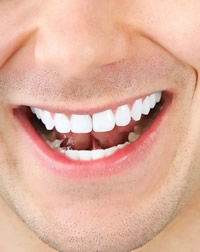
By Joseph T. Hung, DMD, MMSc
 A good number of us have what is often referred to as a “bad bite”. This is a term used to describe malocclusion and is basically an issue with numerous symptoms that occurs when your teeth do not align correctly.
A good number of us have what is often referred to as a “bad bite”. This is a term used to describe malocclusion and is basically an issue with numerous symptoms that occurs when your teeth do not align correctly.
The way that your teeth fit together when you close your jaw and bite is called occlusion and if the problem is not addressed, it can actually leading to some more serious problems over time.
Unbalanced bite
Malocclusion is when you have an unbalanced bite and it is highly likely that you will experience not just one but at least three or more of the symptoms that point to a dental problem that needs correcting.
Many of us experience varying degrees of malocclusion but a visit to specialists will often result in treatment that resolves whatever problems you are having in this respect.
Malocclusions are not just treatable but they are also reversible. You can put matters right and enjoy a healthy bite provided you get the problem seen to quickly enough and you don’t leave it until irreversible damage is done.
Self-check
There are numerous symptoms that point to the possibility that you have malocclusion but there are several relatively easy ways that you can self-check in order to decide that a visit to an orthodontist is required.
Sensitivity
You may experience sensitive teeth on a regular basis. Your teeth should feel comfortable whenever you are chewing different foods and whether it is a single tooth or an entire row that are giving you pain, you should consider getting an expert to take a look.
There are a number of dental problems that could be causing sensitive teeth such as fractured thin spots on enamel, due to a misaligned bite or a problem with a filling.
Soreness
If you experience a sore jaw and experience tenderness or muscle spasms when you wake up after a sleep, this is one of the more commonplace indicators that you have a bite problem.
Your teeth should be able to get the opportunity to rest comfortably throughout the night but when the jaw muscles on either side of your mouth are fighting against each other rather than being in harmony, this can lead to night time grinding.
Fillings
If you notice that your fillings are not lasting as long as they should be or you seem to be chipping natural teeth, this could be a sign of malocclusion.
Your molars should be doing most of the hard work in a normal health mouth but when other teeth around them suffer too much stress, they will eventually show signs of deterioration. No amount of visits to your dentist is likely to get to the heart of the problem just by repairing a broken tooth or filling, as it is possible that your bite is not adjusted correctly and will need correcting to properly remedy the situation.
Worn down teeth
If you open your mouth wide and take a good look yourself using a mirror, you can check to see if there are any square or flat shiny spots on the chewing edges of your teeth.
Also have a look to see if the tips of your teeth are looking like they are worn down .If you can actually see clear signs of flat spots, this could be a strong indication that you have some serious teeth issues to contend with.
The hard outer shell of your tooth is very durable and provides an important layer of protection, so when this shell wears down, your softer inner layers become much more vulnerable to decay and will subsequently break down much quicker than they should do.
Nice smile
 A nice smile perhaps come from within but it also helps to have well-aligned teeth in order to achieve not just a great smile but also helps to ensure that you minimize the prospect of suffering from chronic pain and tooth loss, which are often caused as a result of having teeth that are out of alignment.
A nice smile perhaps come from within but it also helps to have well-aligned teeth in order to achieve not just a great smile but also helps to ensure that you minimize the prospect of suffering from chronic pain and tooth loss, which are often caused as a result of having teeth that are out of alignment.
Solutions
An orthodontist is specifically trained to deal with any “bad bite” issues and there are three specific ways that a malocclusion can be corrected.
It may be suggested that you wear a night guard, which is a hard plastic retainer that fits closely over the upper and lower teeth. Your orthodontist may suggest some type of brace or you might be suitable for occlusal equilibration, which involves painlessly smoothing out the bumps and hollows to adjust your bite accordingly.
The key to successful treatment is dental diligence. So act as soon as you think that you may have a problem with your teeth that might have been caused by malocclusion.
– Joseph T. Hung, DMD, MMSc, is active in the New York dental and orthodontic communities. He likes to extend his services by providing the latest information on dental medicine to readers. You can find his informative articles on many medical, health and dental blog sites. Keep up to date with dental issues on Facebook and see ManhattanOrtho for more information on treatments.
